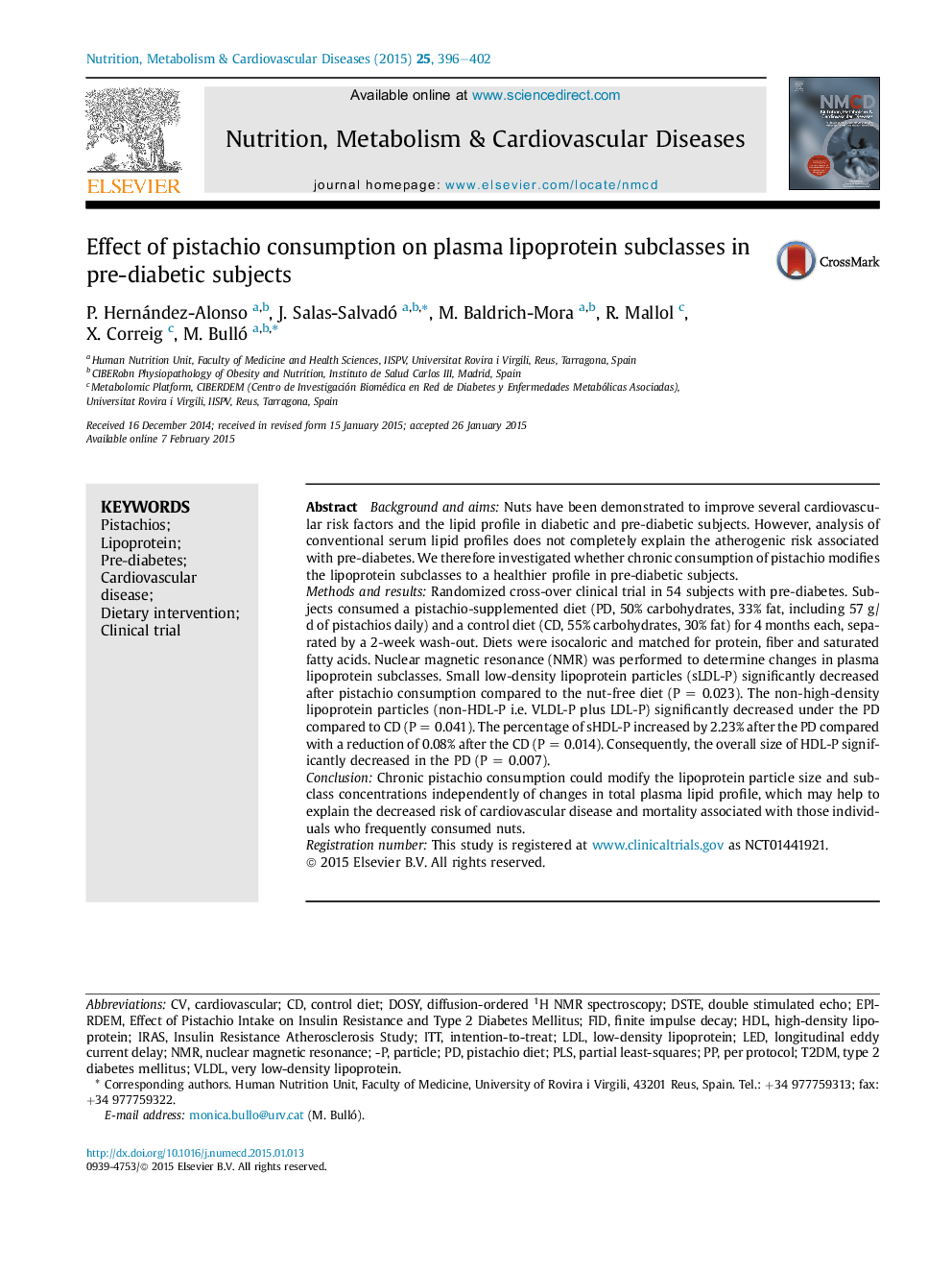| Article ID | Journal | Published Year | Pages | File Type |
|---|---|---|---|---|
| 3001908 | Nutrition, Metabolism and Cardiovascular Diseases | 2015 | 7 Pages |
•We examined the effect of pistachio intake in lipoprotein subclasses.•Pistachio intake improves the lipoprotein profile in pre-diabetic subjects.•We suggest it as a dietary tool for managing other prevalent chronic diseases.
Background and aimsNuts have been demonstrated to improve several cardiovascular risk factors and the lipid profile in diabetic and pre-diabetic subjects. However, analysis of conventional serum lipid profiles does not completely explain the atherogenic risk associated with pre-diabetes. We therefore investigated whether chronic consumption of pistachio modifies the lipoprotein subclasses to a healthier profile in pre-diabetic subjects.Methods and resultsRandomized cross-over clinical trial in 54 subjects with pre-diabetes. Subjects consumed a pistachio-supplemented diet (PD, 50% carbohydrates, 33% fat, including 57 g/d of pistachios daily) and a control diet (CD, 55% carbohydrates, 30% fat) for 4 months each, separated by a 2-week wash-out. Diets were isocaloric and matched for protein, fiber and saturated fatty acids. Nuclear magnetic resonance (NMR) was performed to determine changes in plasma lipoprotein subclasses. Small low-density lipoprotein particles (sLDL-P) significantly decreased after pistachio consumption compared to the nut-free diet (P = 0.023). The non-high-density lipoprotein particles (non-HDL-P i.e. VLDL-P plus LDL-P) significantly decreased under the PD compared to CD (P = 0.041). The percentage of sHDL-P increased by 2.23% after the PD compared with a reduction of 0.08% after the CD (P = 0.014). Consequently, the overall size of HDL-P significantly decreased in the PD (P = 0.007).ConclusionChronic pistachio consumption could modify the lipoprotein particle size and subclass concentrations independently of changes in total plasma lipid profile, which may help to explain the decreased risk of cardiovascular disease and mortality associated with those individuals who frequently consumed nuts.Registration numberThis study is registered at www.clinicaltrials.gov as NCT01441921.
